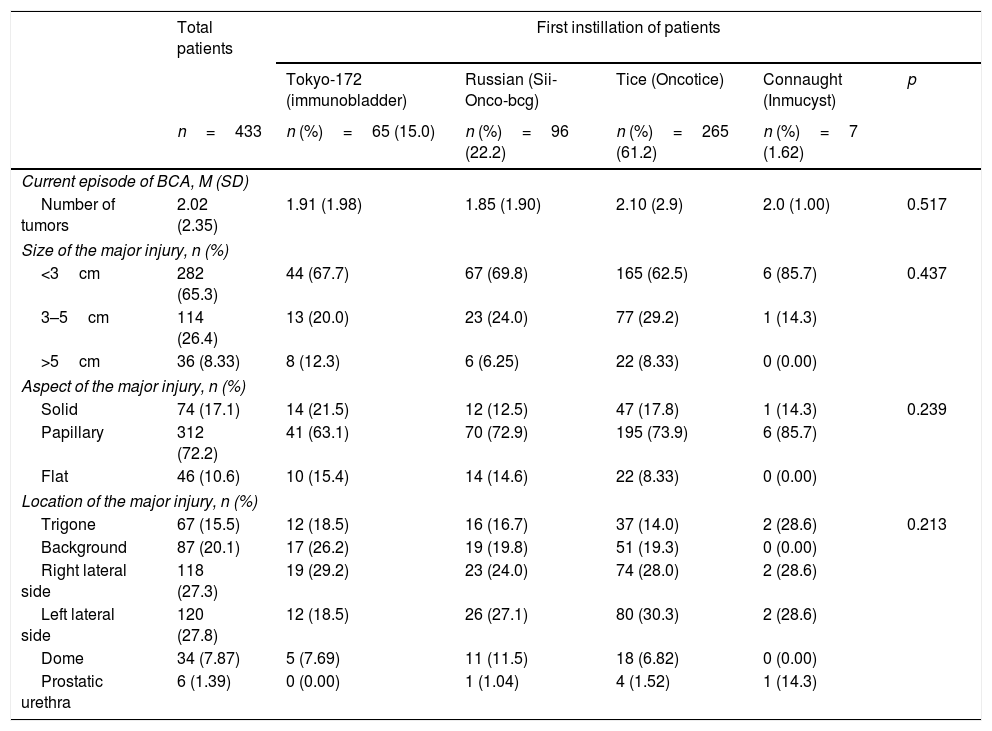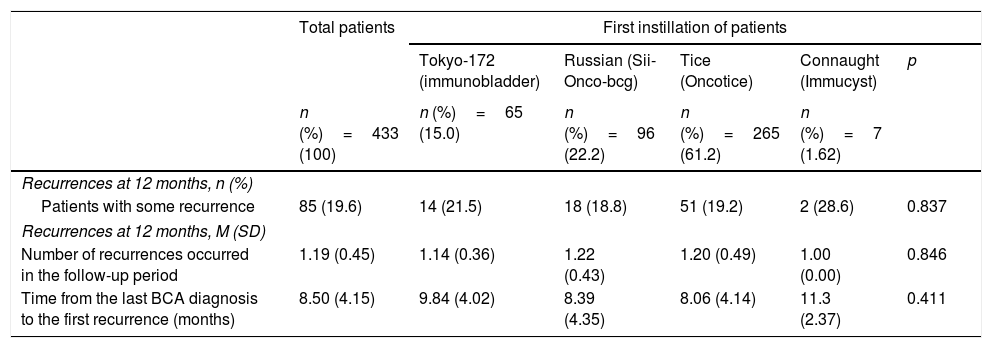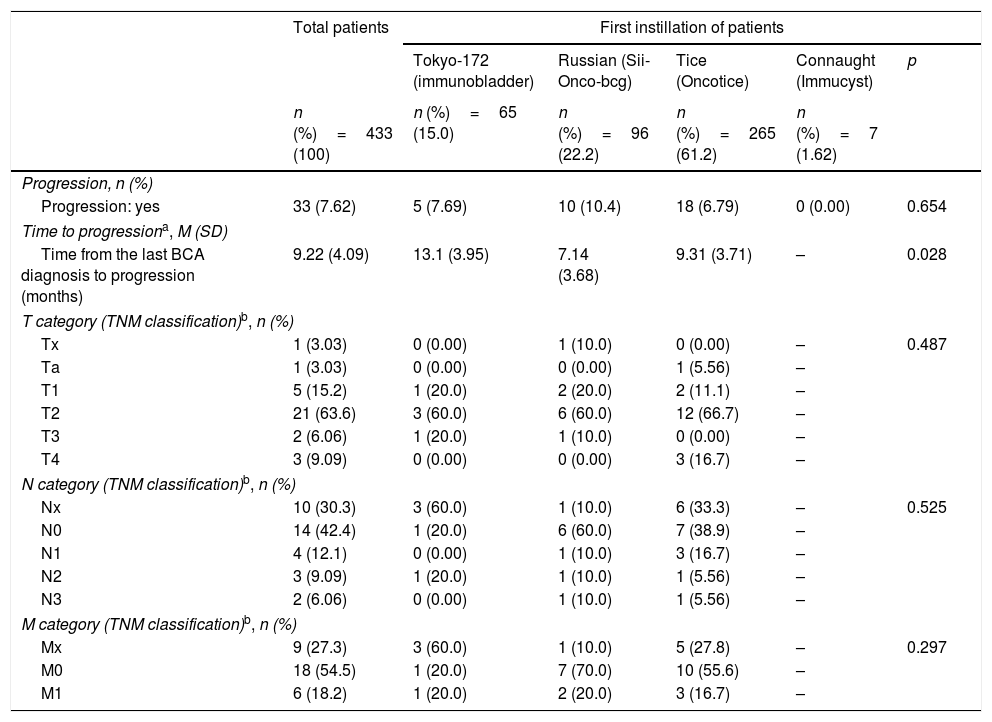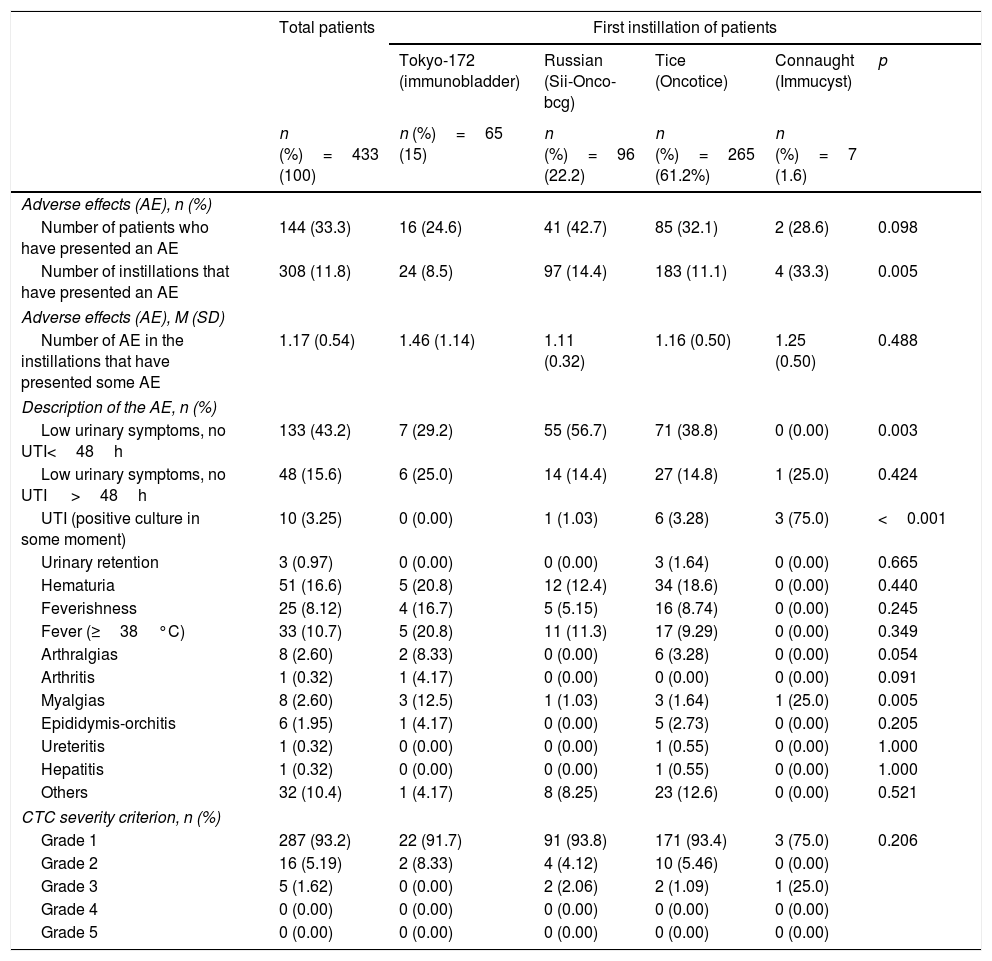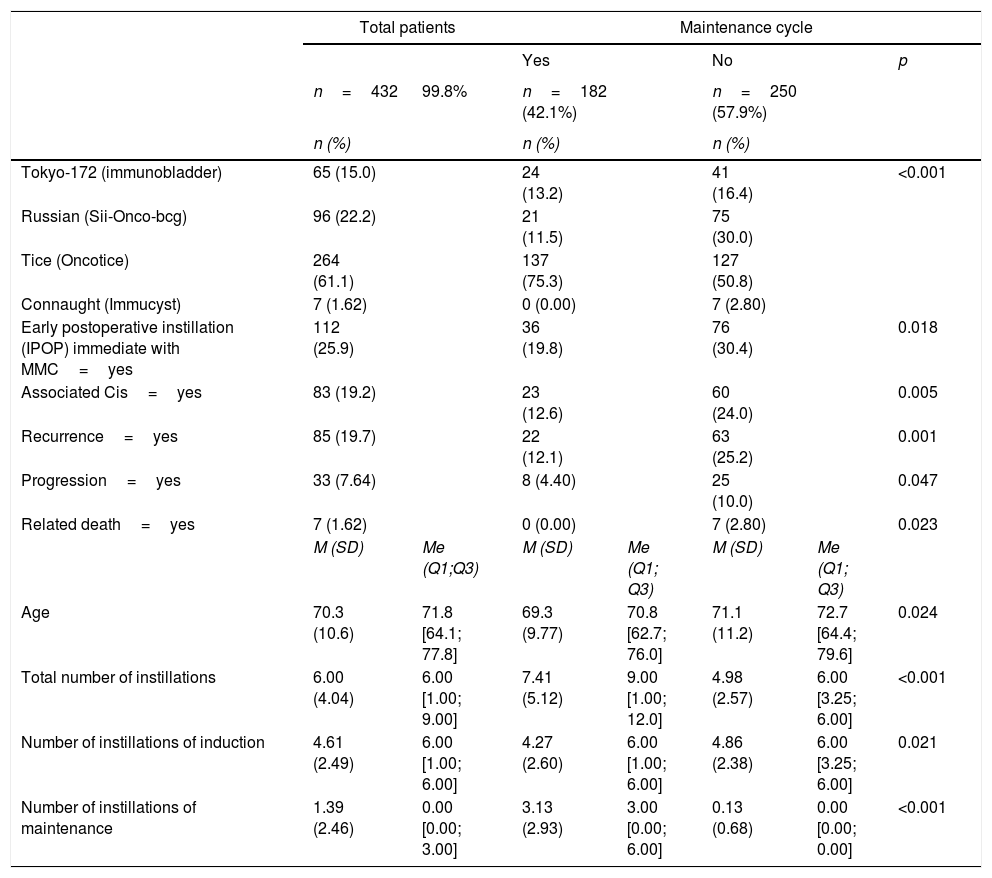The natural progression of bladder tumors (nonmuscle-invasive bladder cancer [NMIBC]) is recurrence with a high rate of progression. Bacille Calmette–Guérin (BCG) has been shown effective in reducing these rates, but there are few comparative studies between strains.
Material and methodsAn observational, prospective and multicentre registry studied 433 patients with a 12-month follow-up visit from 961 registered patients, assessing disease-free survival (DFS), progression-free survival (PFS) cancer-specific survival (CSS) and adverse effects. We studied the Tice, Russian, Tokyo, Connaught and RIVM strains.
ResultsThe sociodemographic data, NMIBC history, comorbidities, size, number, stage, grade, associated carcinoma in situ and transurethral resection were well balanced.
DFSThere were 85 relapses (19.6%). The median DFS time was 20months. When comparing the various strains, we detected no statistically significant differences (log-rank test; p=0.93). LPS: There were 33 cases of progression (7.62%). When comparing the various strains, we detected no statistically significant differences (log-rank test; p=0.69). CSS: Seven patients died (1.68%). When comparing the various strains, we detected no statistically significant differences (log-rank test; p=0.93).
In terms of safety, 33.3% of the patients presented some type of adverse effect, mostly lower urinary symptoms (no urinary tract infections) <48h, >48h and haematuria. According to the Common Toxicity Criteria of the European Organisation for Research and Treatment of Cancer, 92.7% of the patients were grade 1. There were no statistically significant differences between the strains.
ConclusionsIn this intermediate analysis, the risk of recurrence, progression, specific death and safety were independent of the BCG strain employed.
La evolución natural del tumor vesical no músculo infiltrante (TVNMI) es la recidiva con elevado porcentaje de progresión. La BCG se ha demostrado eficaz para disminuir estos porcentajes, pero hay pocos estudios comparativos entre cepas.
Material y métodosRegistro observacional, prospectivo y multicéntrico, estudiándose 433 pacientes con visita de seguimiento a 12meses de 961 registrados y evaluado supervivencia libre de enfermedad (SLE), de progresión (SLP) cáncer-específica (SE) y efectos adversos. Se estudiaron las cepas Tice, Russian, Tokyo, Connaught y RIVM.
ResultadosLos datos sociodemográficos, antecedentes de TVNMI, comorbilidades, tamaño, número, estadio, grado, CIS asociado y Re-RTU, están bien balanceados.
SLE85 recidivas (19,6%). La mediana del tiempo de SLE fue 20meses. Al comparar las diferentes cepas, no se detectaron diferencias estadísticamente significativas (Log-rank test, p=0,93). SLP: 33 progresiones (7,62%). Al comparar las diferentes cepas, no se detectaron diferencias estadísticamente significativas (Log-rank test, p=0,69). SE: fallecieron 7 pacientes (1,68%). Al comparar la SE entre las diferentes cepas, no se detectaron diferencias (Log-rank test, p=0,93). En seguridad, el 33,3% habían presentado algún tipo de efecto adverso, mayoritariamente clínica urinaria baja no ITU<48h, >48h y hematuria. Según los Common Toxicity Criteria de la European Organization for Research and Treatment of Cancer, el 92,7% eran grado1. No se obtuvieron diferencias estadísticamente significativas relevantes entre cepas.
ConclusionesEn este análisis intermedio, el riesgo de recidiva, progresión, muerte específica y seguridad es independiente de la cepa de BCG utilizada.
Artículo
Comprando el artículo el PDF del mismo podrá ser descargado
Precio 19,34 €
Comprar ahora









